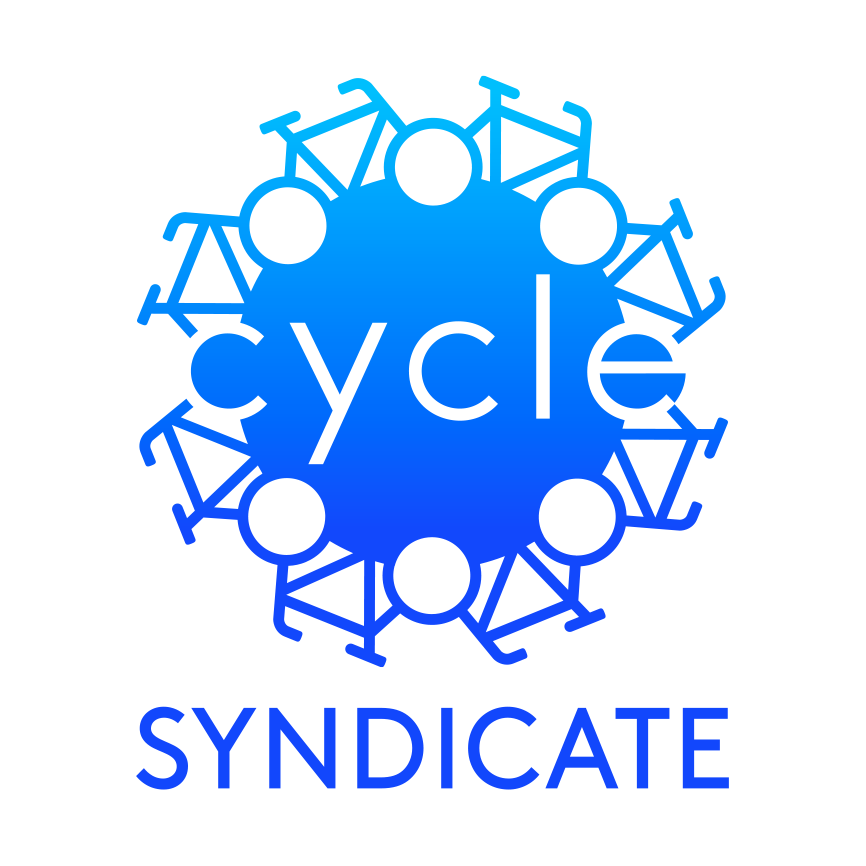This article originally published on InsNerds.com
“By now, I wonder how, Some people never know”
Don’t Believe The Hype – Public Enemy
I am a sucker for new stuff. I bet many of you are as well. If news of the release date of the iPhone 7 caused you to immediately organize your camping gear for a week long sidewalk holiday at your local Apple store, then you know what I am talking about. Beyond our excitement for the next iPhone or Tesla, apparently we also get all giddy for new insurance as well.
Recently a new insurer named Lemonade has popped up on the scene and has caused quite a ripple. Here are some recent news headlines:
-
- Some cool insurance products are finally on the horizon – Market Watch
- Lemonade is revolutionizing risk management – Asean
- Startup P2P Insurer Lemonade Reveals How First 48 Hours of Business Went – Insurance Journal
- Insurance startup Lemonade pays claims quickly, doesn’t profit from denials – Repairer Driven News
- Insurance Startups Push Peer-To-Peer, Online Policy Tech – Law360
- Peer-to-Peer Insurance Adds a Human Touch Through Mobile Technology – Insights
- How Lemonade’s founders raised a massive seed round just by talking – Business Insider
Wow! Give that publicist a raise. That is some quality publicity.
But it was when I saw this headline here on InsNerds: “The Sheer Genius of Lemonade – A Whole New Paradigm for Personal Lines Insurance”, I knew I had to speak out. Next thing I know, my good friend Tony convinces me to write this rebuttal.
So, to start, this article is NOT a criticism of Lemonade or what they are trying to bring to the consumer. Insurance is in desperate need of heart and soul. No, what this article will do is splash some cold water on the hype inferno that appears to have taken over the sane minds of our industry. So allow me to go point by point with my criticisms:
Is Lemonade really Peer-to-Peer Insurance?
Peer-to-Peer Insurance – Whether it’s called Peer-to-Peer or fashionably referred to as P2P, Lemonade ain’t either of those things. Lemonade is a standard insurance company. You pay premiums, and they pay claims from the general pool of funds. There are no peer groups insuring one another. There is no distribution model of peer invitations or referrals. There is none of that. The only “peer” element of the business model is that you will, as a customer, be grouped with others like you for the sole purposes of dispersing any underwriting profits to a charity of the group’s choosing. Now, there is a reason for this that I will attempt to get into later on, but, seriously, was anything I just described even remotely connotative of Peer-to-Peer? Want to know what Peer-to-Peer looks like, see Friendsurance or Guervara.

Is Lemonade really InsurTech?
Sure, Lemonade is an online only firm. And yes, you can buy their insurance products through an app on your phone in which a bot named Maya will help you with your coverage selections, but it’s still just an insurance company with a fancy website. I can buy insurance from other insurance companies where I can choose from dealing with their website, walking into an agent’s office or calling them over the phone. They’ve eliminated 2 options from me, and given me a sole option that is little different from what I could have had before. And before you start screaming, “but I don’t want to call anyone or drive to any office” just keep in mind that having options makes the experience better. Insurance is complicated enough that occasionally I would like to call someone or walk into an office and scream my head off. I deserve that option!
What about the bot and the machine language, isn’t that technology? It is technology in the sense that there are computer scientists engineering a robot to replace a human. But if the experience is crummier than just dealing with a human, then it is a wasted effort. But, in an attempt to play fair, I will reverse my position on this one, if it can be shown that the robot can handle the firestorm that comes when the company is hit with their first major natural catastrophe.
But isn’t it awesome that Lemonade’s underwriting profits go to charity?
One of the big marketing ideas coming from Lemonade is a unique feature of aligning the interests of policyholders and the insurer by taking excess profits and donating them to charity in the name of the peer group discussed above. Fraud is a big deal in insurance and most insurers have systems in place to detect and counteract fraud. The charity angle from Lemonade is an attempt to prevent fraud from happening by linking the monetary loss due to fraud, not to the big-bad insurer, but to a softer, more sympathetic victim. Fundamentally, if you are a Lemonade policyholder and your claim is fraudulent is any way, you are depriving some charity of much needed funds.
It is an interesting concept, but my issue with it is that I don’t believe it will have much of a financial punch. The first drawback is that property insurance, being a natural catastrophe (CAT) exposed business, is subjected to infrequent but occasionally massive losses. What appears to be underwriting profits in the quiet years between CATs are really opportunities to strengthen your balance sheet for the inevitable hit. As Lemonade expands to other states, their inability to build surplus because of the charity and their corporate status (see below), will really hamper their business model. They are now and will fully be, reliant on reinsurance to back their entire program. That by itself is not terrible, but with full reliance on reinsurers, the excessive profits that they think will make themselve availed of, in reality, just go to the reinsurer. Think about this, if the reinsurer is taking all the risk, why would Berkshire Hathaway or Lloyds of London (2 of the reinsuring entities for Lemonade) not wish to profit from the transaction? These excess underwriting profits will simply transfer from insurer to reinsurer. My prediction is that the charitable donations will, in most years, be nonexistent or minuscule in comparison to premiums paid.
My second issue with the charity angle, is that I don’t think it will bring the alignment of interest that Lemonade believes it will.One reason is that, if I am correct about the excess profits not materializing, then just the intermittent scheduling of charitable givings makes the whole exercise uninteresting to the insured, in my opinion. If Lemonade can’t provide a significant charitable donation in most years, the alignment will lose its appeal simple because the policyholders won’t be able to hang their hats on it, so to speak. But perhaps worse, the charity angle may lose effectiveness because Lemonade is also marketing that they pay claims “super fast”. Super fast claims handling (which on their website, they tout as a check in minutes), invites fraud. I think there is a major conflict of the business model. If your marketing message is that you can get a claims check in a few minutes without having an adjuster or claims rep work the claim, then your message is music to those who in which the charitable message will have no impact. An an insurance buyer and seller I know that out of super low prices, super fast claims handling and excess profits to charities, I can only choose one of those angles. More than one seems difficult. Getting all three strikes me as impossible.
A broker by any other name…
Lemonade is a broker by another name. Another of Lemonade’s selling points is that insurers have a conflict of interest in that they make money by denying claims. Lemonade, purports to have absolved themselves of this conflict by not actively acting like an insurer. Here’s how:
Lemonade is actually two companies. It is a risk-bearing insurance company AND a brokerage firm. When you buy a policy from Lemonade, the 20% fee goes immediately to the brokerage firm. The remaining 80% stays with the insurer. The paper on which the insurer is based is a B-corporation, which essentially makes it a non-profit. So it is the brokerage part of the business that is the money maker. That is the entity that secured all that seed-funding. Sequoia Capital knows a thing or two about making sound investments. They don’t do non-profits. And once the fee from the premiums that the policyholder pays gets swept into the Lemonade’s brokerage company, it will not be used to pay claims, at all…ever. It is income, free of insurance risk. If the insuring entity ever goes insolvent, all the fees will be protected.
And there is nothing wrong with this. It is a model that has been used successfully already by other insurers. But, by acting as a broker, Lemonade has shifted its risk from the risk of loss or damage of the client towards that of a trusted advisor who only has one product to sell and gets a 20% commission for selling that one product. What if, their product is NOT the best choice for the client? Will Maya the bot steer the buyer elsewhere like a traditional agent would? No. How forceful will Maya point out all the flaws and gaps of Lemonade’s ISO style homeowners policy? Will Maya give direction to the insured about the flood or earthquake policy they really should have, but can’t buy through Lemonade? Somehow I can’t match the hype and excitement of the internet of seeing a broker selling an average product, even if it’s sold via a robot.
Lastly, I want to challenge the major premise of Lemonade, that insurers make money by denying claims. As a professional in the business for 20 years, this is the one selling point that Lemonade and it’s marketing keeps touting that upsets me the most. It upsets me because it isn’t true. In fact, I have seen the opposite. I have seen emails or communications from senior executives to staff adjusters onsite during a natural disaster that flat out instructed their adjusters to move quickly, be fair and if there is any doubt about the damage, settle IN FAVOR of the policyholder. I am not naive enough to believe that insurers never play fast or loose with their claims handling but by and large, insurers pay their claims. In the property area in which Lemonade competes, those policies they sell are legal contracts. Many a court battle has been fought to word the contract so that claims can be settled quickly and fairly. Lemonade is implying that they will be different, they are almost implying that they won’t deny claims. Are there really claims that insurers have denied (and acknowledged via the court system) that Lemonade would not have? I seriously doubt it.
Look, I like new things, you like new things. Lemonade is the new thing on the 300-year old block. But the shiny new aspects that Lemonade are bringing to the table don’t appear to be worthy of the hype in my opinion. I give them an A for effort in maximizing the hype to drive attention and sales. But insurance is all about the long game. The real KPIs are retention, combined ratios and customer satisfaction. Those will take years to sort out. Are they truly in it for the customer, do they really want to revolutionize the business model or is the exit strategy already in place. The world is watching. I hope they succeed.
About Nicholas Lamparelli
Nick Lamparelli is a 20+ year veteran of the insurance wars. He has a unique vantage point on the insurance industry. From selling home & auto insurance, helping companies with commercial insurance, to being an underwriter with an excess & surplus lines wholesaler to catastrophe modeling Nick has wide experience in the industry. Over past 10 years, Nick has been focused on the insurance analytics of natural catastrophes and big data. Nick serves as our Chief Evangelist.
Nick Lamparelli is a 20+ year veteran of the insurance wars. He has a unique vantage point on the insurance industry. From selling home & auto insurance, helping companies with commercial insurance, to being an underwriter with an excess & surplus lines wholesaler to catastrophe modeling Nick has wide experience in the industry. Over past 10 years, Nick has been focused on the insurance analytics of natural catastrophes and big data. Nick serves as our Chief Evangelist.

.jpg) Nicholas Lamparelli
Nicholas Lamparelli








